You're in a pinch and need a Dijon mustard substitute fast. I have some good and bad news for you. Let's start with the bad: Dijon mustard offers a distinctive flavor that's full of bite and heat, yet mellow and creamy. You get all this in one mouthful, which creates a challenge – it's hard to replace with other condiments.
But there is some good news. We're going to provide you with some delicious alternatives to Dijon mustard that you're likely to already have in the kitchen. They may not offer an identical flavor profile, but they're not far off. If you're using Dijon in a recipe with lots of other flavors, such as a marinade or meat rub, you'll probably pull this off without anyone even knowing.
Table of Contents
8 Dijon Mustard Substitutes
1. Yellow Mustard
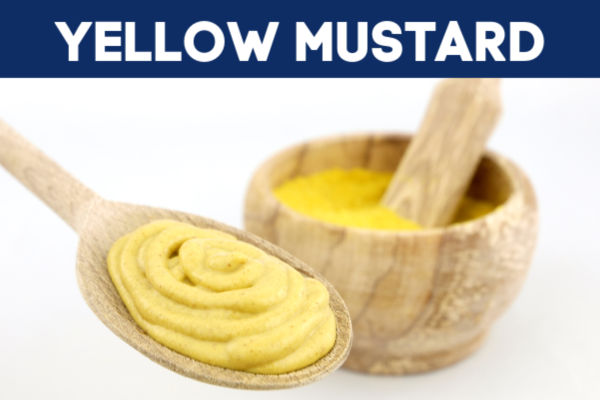
Yellow mustard can be used as a makeshift Dijon. They both are made from yellow mustard seeds so there is a similar taste profile. Yellow mustard would work well in dishes such as casseroles where it gets combined with a range of other ingredients. This will take the spotlight off the fact that they have two major differences. Their visual appearance is miles apart and also, Dijon has a stronger kick to it.
Both Dijon and yellow mustard have a creamy texture that is ideal for emulsifying. So if you’re making a sauce that calls for Dijon, you can use yellow mustard as a good mock-Dijon.
2. Wasabi
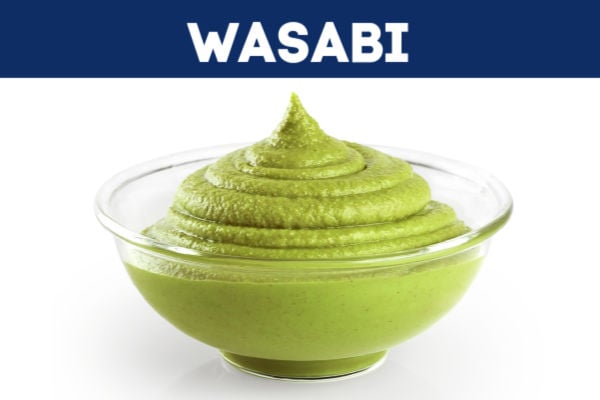
The combination of horseradish and mustard makes wasabi a useful ingredient when you want to cook a spicy recipe. If the recipe is using Dijon for heat, then wasabi is an excellent alternative. Keep in mind that only a tiny amount of wasabi is needed to get the same heat-bomb, so use considerably less in the meal.
If you need Dijon for its creamy properties (such as a sauce), then wasabi isn't recommended. Yellow mustard is a better option.
3. Honey Mustard
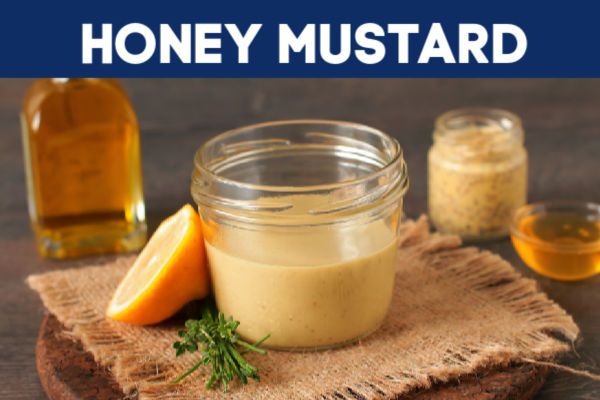
With the addition of honey, this mustard is moving away from a traditional Dijon mustard in its flavor profile. But that doesn't mean it won't make a useful Dijon mustard alternative. Honey mustard excels in potato salads thanks to the added sweet taste. Also use in dips, marinades, and sauces.
4. Brown Mustard
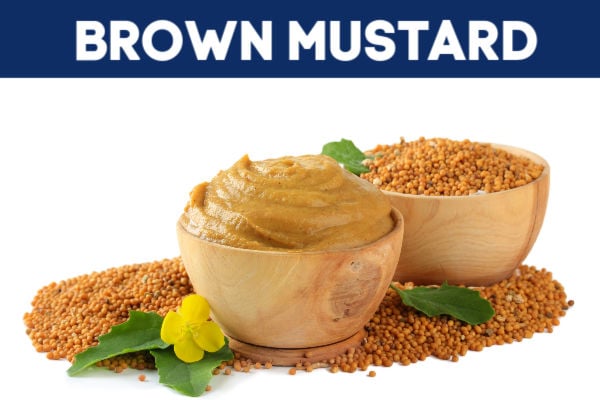
Brown mustard is spicier in taste and a darker color thanks to a higher concentration of brown mustard seeds. It's pungent flavor, and creamy texture makes it a suitable substitute for Dijon mustard.
Brown mustard gets processed in such a way that its texture is like Dijon. That means it's a good backup option where the mustard will be visible, such as a sandwich or meat glaze. You'll still get those lovely mustard seeds adding another visual element to the dish.
5. Egg Yolk Powder
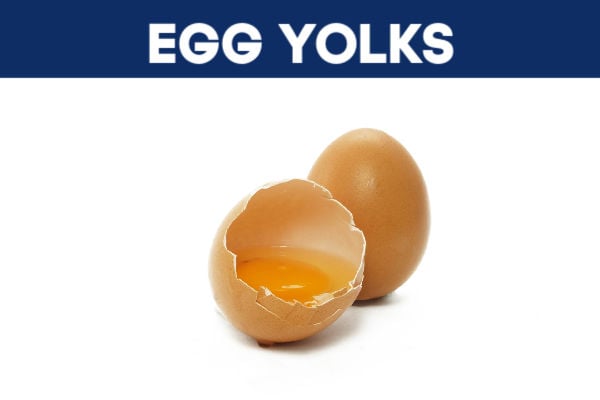
With this option, you won't get any of the flavor benefits that you'd get from Dijon mustard. But, if you're making a dressing or vinaigrette that calls for Dijon to act as an emulsifier, egg yolk powder will work well.
6. Mayonnaise
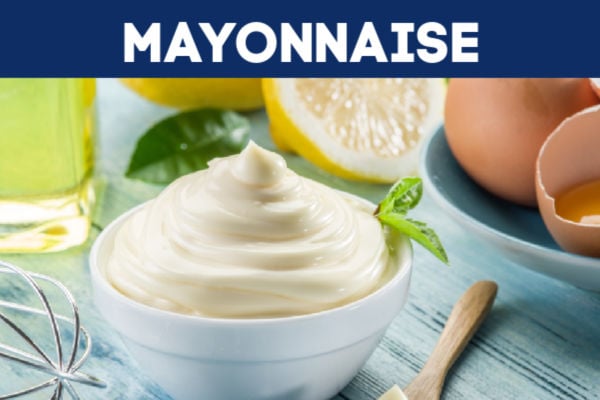
Mayonnaise is a good alternative if you're cooking for kids or people who can't tolerate spicy food. Mayonnaise is a creamy, mild alternative that most will enjoy. It will make a significant change to your recipe, but that may be a good thing.
Mayo usually contains vinegar, so you'll still get that tangy flavor.
7. Horseradish
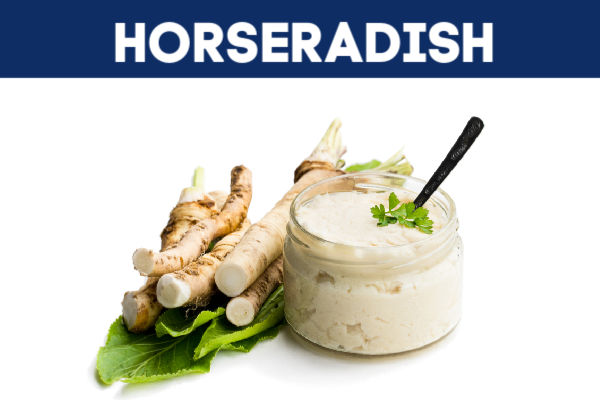
Horseradish is a tasty substitute when you need a sauce for meat. beef, lamb, venison, and on fish like red snapper. It is very pungent and hot, without the creamy, mellow profile of Dijon. If used sparingly, it will work well in casseroles and on meats as a rub.
8. Make Your Own
Feeling motivated? Then why not make a batch of homemade Dijon? Keep in mind this takes time – you need to rest the mustard seeds for at least 24 hours, preferably two days. If you need a backup Dijon now, then jump to the next section where you can find a faster solution.
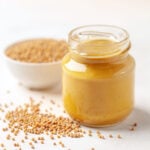
Homemade Dijon Mustard
Ingredients
- 2 Tbsp yellow mustard seeds
- 2 Tbsp brown mustard seeds
- ¼ cup white wine vinegar
- ¼ cup white wine choose a quality dry white
- ½ tsp onion powder
- salt to taste
Instructions
- Add the seeds, wine vinegar, and white wine to a glass bowl and mix with a spoon until combined.
- Use plastic wrap to cover the bowl and allow to sit at room temperature for 24 hours.
- If time permits, increase that to 2 days for the best results. Place in a cool, dry area away from direct sunlight.
- Add the mixture to a blender and add the onion powder and salt to a blender — process for about 20 seconds. You want to retain the texture of the seeds.
- Scoop into a glass jar and cover before placing it in the fridge for one day before using it.
FAQs
Dijon mustard is a spicy, pungent tasting paste made from brown and yellow mustard seeds, white wine, and white wine vinegar. Regular mustard, or yellow mustard, offers a milder flavor and is made from ground mustard, vinegar, and turmeric. Dijon mustard is textured with seeds and is creamy; yellow mustard is also creamy but offers a smooth texture.
Homemade Dijon mustard will last 2-3 months when stored in an airtight container, refrigerated. Unopened, store-bought Dijon mustard has a shelf life of two to three years past the expiry date printed on the label.
French mustard is an English condiment, designed to offer a sweeter, milder flavor profile than English mustard. Dijon mustard originated from Dijon in France and has a hot, pungent flavor. It has a coarsely processed texture and seeds that are visible.
Dijon mustard is spicy because it contains yellow and brown mustard seeds.
Use Dijon mustard in sandwiches, salad dressings, sauces, and marinades. It also can be added to glazes, meat rubs, dips, coleslaws, crusts, and casseroles.
Watch the video
Final Words
There are plenty of substitutes for Dijon mustard. You're sure to have a backup option already in the fridge at home. If you have some time up your sleeve, I'd recommend making your own Dijon mustard as this is the real thing. It does take a couple of days to make so that it won't be an option for everyone.
I like using brown or wholegrain mustard if I'm in a pinch. They have a similar flavor profile and also look alike.
Do you have a secret Dijon mustard substitute? Let us know in the comments below.

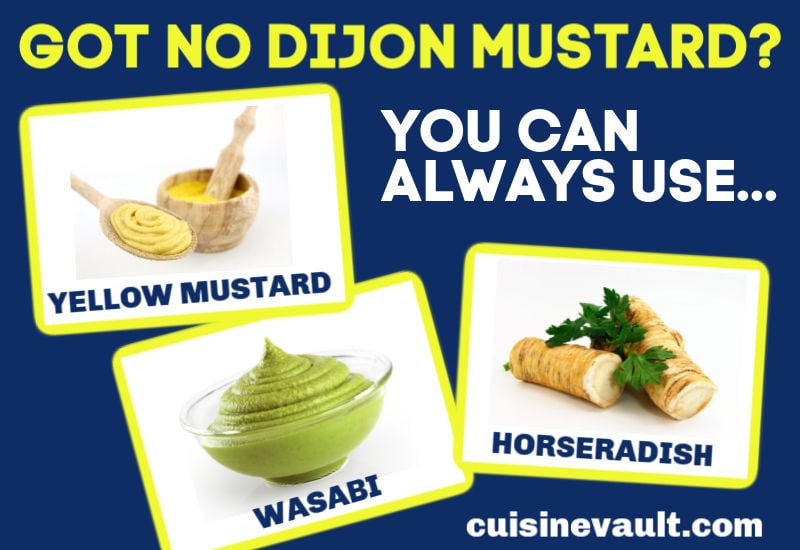

Leave a Reply